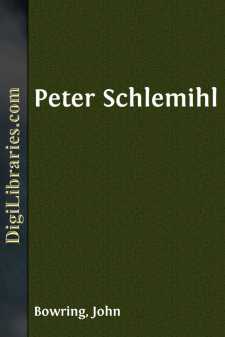Categories
- Antiques & Collectibles 13
- Architecture 36
- Art 48
- Bibles 22
- Biography & Autobiography 816
- Body, Mind & Spirit 145
- Business & Economics 28
- Children's Books 17
- Children's Fiction 14
- Computers 4
- Cooking 94
- Crafts & Hobbies 4
- Drama 346
- Education 58
- Family & Relationships 59
- Fiction 11834
- Foreign Language Study 3
- Games 19
- Gardening 17
- Health & Fitness 34
- History 1378
- House & Home 1
- Humor 147
- Juvenile Fiction 1873
- Juvenile Nonfiction 202
- Language Arts & Disciplines 89
- Law 16
- Literary Collections 686
- Literary Criticism 179
- Mathematics 13
- Medical 41
- Music 40
- Nature 179
- Non-Classifiable 1768
- Performing Arts 7
- Periodicals 1453
- Philosophy 66
- Photography 2
- Poetry 897
- Political Science 203
- Psychology 45
- Reference 154
- Religion 516
- Science 126
- Self-Help 85
- Social Science 82
- Sports & Recreation 34
- Study Aids 3
- Technology & Engineering 59
- Transportation 23
- Travel 463
- True Crime 29
Our website is made possible by displaying online advertisements to our visitors.
Please consider supporting us by disabling your ad blocker.
Peter Schlemihl
by: John Bowring
Categories:
Description:
Excerpt
To my old Friend, Peter Schlemihl.
Well! years and years have pass’d,—and lo! thy writing
Comes to my hands again,—and, strange to say,
I think of times when the world’s school, inviting
Our early friendship, new before us lay;—
Now I can laugh at foolish shame—delighting
In thee, for I am old—my hair is grey,—
And I will call thee friend, as then—not coldly,
But proudly to the world—and claim thee boldly.
My dear, dear Friend! the cunning air hath led me
Through paths less dark and less perplexed than thine,
Struggling for blue, bright dawnings, have I sped me,
But little, little glory has been mine.
Yet can the Grey Man boast not that he had me
Fast by my shadow! Nay! he must resign
His claims on me,—my shadow’s mine. I boast it,—
I had it from the first, and never lost it.
On me—though guiltless as a child—the throng
Flung all their mockery of thy naked being,—
And is the likeness then so very strong?
They shouted for my shadow—which, though seeing,
They swore they saw not—and, still bent on wrong,
Said they were blind; and then put forth their glee in
Peals upon peals of laughter! Well—we bear
With patience—aye, with joy—the conscience clear.
And what—what is the Shadow? may I ask ye,
Who am myself so wearyingly asked.
Is it too high a problem, then, to task ye?
And shall not the malignant world be tasked?
The flights of nineteen thousand days unmask ye,
They have brought wisdom—in whose trains I basked,
And while I gave to shadows, being—saw
Being, as shadows, from life’s scene withdraw.
Give me thy hand, Schlemihl—take mine, my friend:
On, on,—we leave the future to the Grey Man,
Careless about the world,—our hearts shall blend
In firmer, stronger union—come away, man!
We shall glide fast and faster towards life’s end.
Aye! let them smile or scorn, for all they say, man,
The tempests will be still’d that shake the deep,
And we in part sleep our untroubled sleep.
ADELBERT VON CHAMISSO.
Berlin, August, 1834.
You forget nobody, and surely you must remember one Peter Schlemihl, whom you now and then met at my house in former days; a long-shanked fellow, who had the credit of awkwardness because he was unpolished, and whose negligence gave him an air of habitual laziness. I loved him—you cannot have forgotten, Edward, how often, in the spring-time of our youth, he was the subject of our rhymes. Once I recollect introducing him to a poetical tea-party, where he fell asleep while I was writing, even without waiting to hear anything read. And that brings to my mind a witty thing you said about him; you had often seen him, heaven knows where and when, in an old black kurtka, which in fact he always wore, and you declared “he would be a lucky fellow if his soul were half as immortal as his kurtka!” So little did you value him. I loved him, I repeat; and to this Schlemihl, whom I had not seen for many a year, we owe the following sheets. To you, Edward, to you only, my nearest, dearest friend—my better self, from whom I can hide no secret,—to you I commit them; to you only, and of course to Fouqué, who, like yourself, is rooted in my soul—but to him as a friend alone, and not as a poet. You can easily imagine, how unpleasant it would be to me, if the secret reposed by an honourable man, confiding in my esteem and sincerity, should be exposed in the pillory of an épopée, or in any way distorted, as if some miserable witling had engendered unnatural and impossible things. Indeed, I must frankly own it is a very shame that a history, which another and cleverer hand might have exhibited in all its comic force, has been reduced to mere insipidity by our good man’s pen. What would not John Paul Richter have made of it! In a word, my dear friend, many who are yet alive may be named, but—
One word more on the way in which these leaves came into my hands. Yesterday morning early—as soon as I was up—they were presented to me. A strange man with a long grey beard, wearing a black, worn-out kurtka, with a botanical case suspended at his side, and slippers over his boots, on account of the damp rainy weather, inquired after me, and left these papers behind him. He pretended he came from Berlin....


